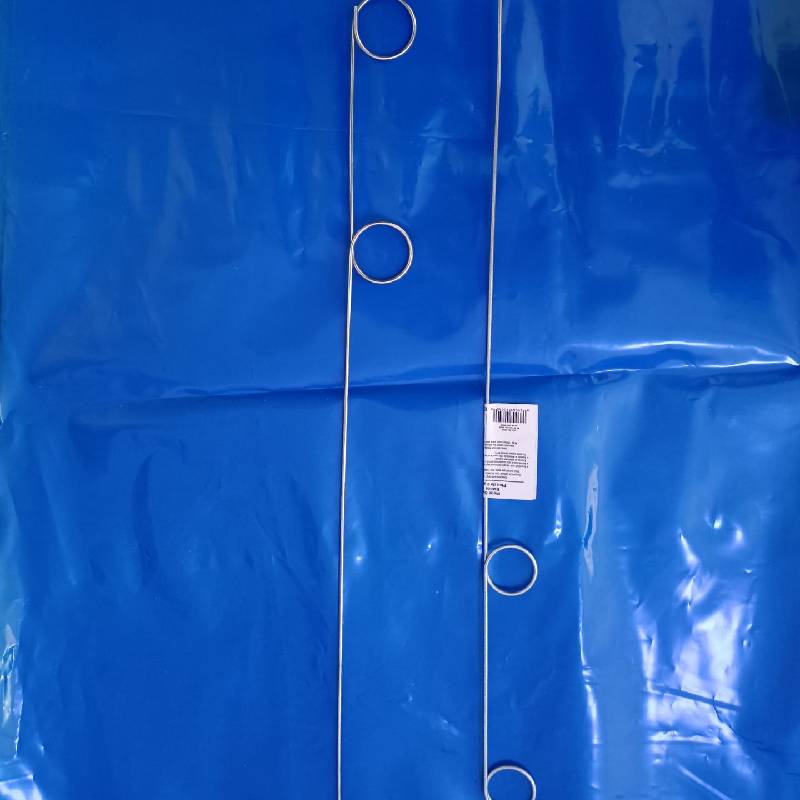
- Mobile Phone
- +8613931874955
- sales@cntcmetal.com
Field Fencing Materials and Equipment for Your Agricultural Needs
The Importance of Field Fencing Supplies An Essential Guide
Fencing is an essential aspect of agricultural management and land use, serving multiple purposes, including protecting crops, containing livestock, and enhancing property aesthetics. The right field fencing supplies play a significant role in achieving these objectives. This article will explore the various types of fencing materials, their applications, and the importance of quality supplies for effective fencing solutions.
Understanding Field Fencing Types
When it comes to field fencing, a variety of options are available, catering to different needs and environments. One of the most common types is barbed wire fencing, which is widely used for livestock management. Barbed wire consists of two strands of wire twisted together, with barbs placed at regular intervals. This design deters animals from escaping and prevents unauthorized access. It's crucial for farmers and landowners to choose the right gauge and spacing for their specific livestock to ensure effectiveness.
Another popular option is woven wire fencing, which consists of vertical and horizontal wires woven together. This type of fencing provides a stronger barrier and is less likely to sag or collapse under pressure. It's particularly effective for containing larger animals, such as cattle, while also preventing smaller animals from getting through. Woven wire fencing can also be used to create protective enclosures for gardens or orchards, safeguarding crops from deer and other wildlife.
Electric fencing is another innovative solution gaining traction among farmers and property owners. It uses a pulsing electric current to create a psychological barrier for livestock. While it can be costlier to install initially, electric fencing can be more flexible and easier to manage in the long run. It is particularly useful for rotational grazing, allowing farmers to shift animal grazing areas without permanent fencing.
Choosing the Right Fencing Supplies
Selecting the correct field fencing supplies is essential for ensuring durability and effectiveness. Quality materials can withstand harsh weather conditions, prevent rusting, and resist wear and tear from animals and natural elements. Here are some key supplies to consider
field fencing supplies

1. Fence Posts The backbone of any fence, these need to be strong enough to support the fencing material. Wooden posts are traditional and can offer a rustic aesthetic, but they require regular maintenance. Metal posts, such as T-posts or round pipe posts, offer durability and are often treated to resist corrosion.
2. Fencing Wire The type of wire used will depend on the kind of fencing system you choose. Barbed wire requires specific gauges and spacing that can impact its effectiveness, while woven wire will have different specifications. For electric fences, ensure the wire is designed to carry the appropriate voltage without a significant loss of current.
3. Insulators For electric fencing, insulators are crucial. They keep the electrified wires from contacting the posts, which could short out the system. Choosing high-quality insulators can ensure the efficiency and safety of the electric fencing system.
4. Gates and Accessories Gates must be durable and secure, allowing for easy access without compromising the integrity of the fence. Various accessories, such as hinges, latches, and corner braces, should also be comprehensive to enhance the fencing system’s overall functionality.
The Importance of Quality Fencing Supplies
Investing in high-quality field fencing supplies not only enhances the longevity of your fencing structure but also ensures the safety of your livestock and crops. Poor-quality materials can lead to frequent repairs, increased costs, and potential losses due to escaped animals or damaged crops. Moreover, a well-installed and maintained fence can serve as a deterrent to trespassers, reducing liability and protecting property.
In conclusion, whether you are managing livestock, protecting crops, or defining property lines, selecting the right field fencing supplies is critical. Understanding the various types of fencing, the essential supplies needed, and the importance of quality materials can significantly impact your overall fencing success. By choosing wisely, you can create a secure and effective barrier that meets your agricultural and land management needs.
share:
-
Yard Sign Stakes: Reliable Guardians of Outdoor SignsNewsAug.04,2025
-
Wall Ties: Invisible Guardians of Building StabilityNewsAug.04,2025
-
Resilient Web: The Super Guardian Power of Concrete MeshNewsAug.04,2025
-
Masonry Accessories: A versatile assistant on building foundationsNewsAug.04,2025
-
Iron Binding Wire: the 'invisible reinforcement specialist' in the fields of architecture and industryNewsAug.04,2025
-
Dynamic Spring: The diverse functions and excellent performance of Wire Tension SpringNewsAug.04,2025
-
Your Source for Concrete Wall Ties and Masonry AccessoriesNewsJul.10,2025



















